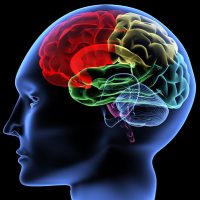
Rosa Baños is Professor of Psychology at the University of Valencia. She has been researching for more than 25 years on how technologies can help to better understand psychological problems, to treat them more efficiently, and to promote mental health. She has pioneered the use of virtual reality to treat psychological problems, and the development of online treatments. She works with a large interdisciplinary team developing and validating digital tools that help promote people’s well-being.
Technologies are bringing about a revolution in the field of mental health. They are helping us to better understand human behavior and experience, and also how to reach higher and healthier levels of well-being. This conference will review the most important advances to date, the data and evidence supporting the use of digital tools in mental health, and vision what future developments will seek individualized and people-centered solutions to improve people’s well-being.
DR ROSA MARIA BANOD weet alles van Ai, robots en alles wat razendsnel op ons afkomt. Om de hooste kwaliteit te leveren hebben we haar speciaal van Valencia laten overkomen. Haar keynote is in het Engels. Maar het zal een mix zijn van veel leren, humor, en oefeningen. Haar Spaans temperament geeft nog een extra toets aan het gebeuren.
Mental Health and Technologies: A Relationship with a Promising Future
Keywords: Internet, Virtual Reality, Mobiles, ICTs, Mental Health,
The development of Information and Communication Technologies (ICTs) has been impressive in the last decades. Their use has spread to all fields, changing the way in which we interact with the context and relate to other people. Albeit their potential dangers and limitations, the use of ICTs is impacting significantly on both society and individuals, and Psychology is one of the areas where ICTs can have a relevant influence. The Internet, mobile phones and devices, sensors, virtual and augmented reality, etc… they are very useful tools that can help us in many of the tasks and objectives entrusted to Psychology. ICTs can provide us dynamic data of the behaviors in the context, collected in an ecological, unbiased, and non-intrusive way, allowing us to develop more comprehensive and complex theories on human behaviors and experiences. But they also allow us to design and deliver precise and personalized interventions, which are delivered in the specific contexts, monitoring and promoting significant changes leading to healthy and adaptive behaviors. Tools such as virtual reality and augmented reality provide “tailored” world simulations, which can be inhabited by virtual agents and avatars, and that can constitute ecological labs for researching complex behaviors in safe and controlled situations. But they can also be useful as training contexts to promote significant and endurable changes. This keynote will provide a view on what ICTs are offering and can offer in the next future to Psychology, focused mainly in the Clinical Psychology field.





